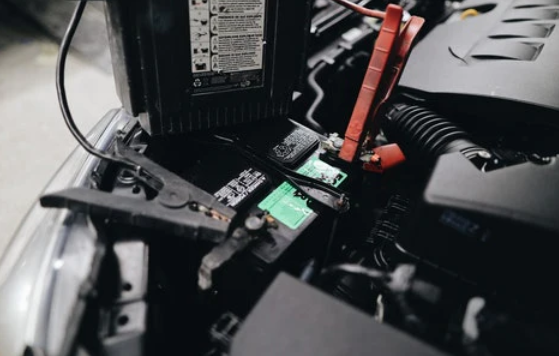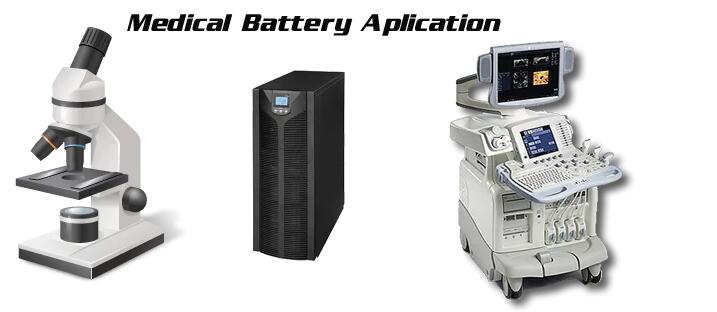Understanding the Basics of an RV Battery
RV batteries play a crucial role in providing power to various electrical systems and appliances in recreational vehicles. Whether you are a seasoned RV enthusiast or a beginner, it is important to have a good understanding of RV batteries and how they work. In this article, we will explore the basics of an RV battery, including types, maintenance, and charging.
Types of RV Batteries
There are several types of batteries commonly used in RVs, each with its own characteristics and advantages. The most common types include flooded lead-acid, AGM (absorbed glass mat), and lithium-ion batteries.
Flooded lead-acid batteries are the most affordable option and are commonly found in older RVs. They require regular maintenance, including checking and adding distilled water to the cells. AGM batteries are maintenance-free and provide better performance, making them a popular choice for many RV owners. Lastly, lithium-ion batteries are the newest and most advanced option. They are lightweight, have a longer lifespan, and offer better charging efficiency, but they come with a higher price tag.
Battery Capacity and Amp Hours
Understanding battery capacity is essential for determining how long your RV battery will last. Battery capacity is measured in amp hours (Ah), which represents the amount of current a battery can provide over a specific period of time. A higher amp hour rating means the battery can provide power for a longer duration.
To calculate how long a battery will last, you need to consider the power consumption of your appliances and the battery\’s capacity. For example, if you have a 100Ah battery and your appliances consume a total of 10 amps per hour, your battery will last approximately 10 hours before needing to be recharged.
Battery Maintenance
Proper maintenance is crucial for maximizing the lifespan and performance of your RV battery. Regularly inspecting the battery for any signs of damage, corrosion, or loose connections is important. Clean the battery terminals and cables with a mixture of baking soda and water to prevent corrosion.
If you have a flooded lead-acid battery, make sure to check the water levels regularly and top them up with distilled water if necessary. AGM and lithium-ion batteries do not require water maintenance but should be stored in a cool and dry place when not in use.
Charging an RV Battery
Charging an RV battery correctly is essential for its longevity and performance. There are three common methods of charging: engine alternator, shore power, and solar panels.
The engine alternator charges the battery while the RV is running. However, this method may not fully charge the battery and can take a long time. Shore power charging involves plugging the RV into an electrical outlet at a campground or RV park. This method provides a consistent and reliable charge.
Solar panels are an increasingly popular option for RV owners. They convert sunlight into electricity to charge the battery. This method is environmentally friendly and allows for off-grid camping.

It is important to note that overcharging or undercharging the battery can lead to reduced performance and a shorter lifespan. Using a smart charger or an inverter charger with built-in charging capabilities can help prevent overcharging and ensure a proper charge.
In conclusion, understanding the basics of an RV battery is essential for any RV owner. Knowing the different types of batteries, their capacities, and how to properly maintain and charge them will help ensure a reliable power supply for all your adventures on the road. Invest in a high-quality battery and follow proper maintenance and charging procedures to prolong its lifespan and maximize its performance.
-
 With the increasing demand for portable electronic devices, the need for high-capacity, lightweight and durable batteries has become more significant. Lithium batteries have emerged as a popular choice because of their high energy density, long cycle life, and low self-discharge rate. However, a single lithium battery may not provide enough power for some applications, which is why it is necessary...En savoir plus
With the increasing demand for portable electronic devices, the need for high-capacity, lightweight and durable batteries has become more significant. Lithium batteries have emerged as a popular choice because of their high energy density, long cycle life, and low self-discharge rate. However, a single lithium battery may not provide enough power for some applications, which is why it is necessary...En savoir plus -
 Are you tired of dealing with a dead battery when trying to start your vehicle? A lithium starter battery may be the solution you been looking for! Here why: First of all, lithium starter batteries are much lighter than traditional lead-acid batteries. This means you can reduce the overall weight of your vehicle without sacrificing power. Plus, the compact...En savoir plus
Are you tired of dealing with a dead battery when trying to start your vehicle? A lithium starter battery may be the solution you been looking for! Here why: First of all, lithium starter batteries are much lighter than traditional lead-acid batteries. This means you can reduce the overall weight of your vehicle without sacrificing power. Plus, the compact...En savoir plus -
 Dans le monde d’aujourd’hui, le stockage de l’énergie est devenu l’un des facteurs les plus importants qui stimulent la croissance et la durabilité de diverses industries. Qu'il s'agisse d'alimenter un site éloigné hors réseau ou de fournir une alimentation de secours en cas de panne de courant, le stockage d'énergie joue un rôle central pour garantir un approvisionnement énergétique ininterrompu. Les batteries lithium-ion, en particulier de type LiFePO4, se sont imposées comme une solution fiable et...En savoir plus
Dans le monde d’aujourd’hui, le stockage de l’énergie est devenu l’un des facteurs les plus importants qui stimulent la croissance et la durabilité de diverses industries. Qu'il s'agisse d'alimenter un site éloigné hors réseau ou de fournir une alimentation de secours en cas de panne de courant, le stockage d'énergie joue un rôle central pour garantir un approvisionnement énergétique ininterrompu. Les batteries lithium-ion, en particulier de type LiFePO4, se sont imposées comme une solution fiable et...En savoir plus -
 Introduction Lithium Iron Phosphate (LiFePO4) batteries are a type of rechargeable battery that have gained popularity in recent years due to their superior characteristics compared to other types of batteries. LiFePO4 batteries are known for their long cycle life, high energy density, and safety features. In this article, we will discuss the characteristics and performance of LiFePO4 batteries. ...En savoir plus
Introduction Lithium Iron Phosphate (LiFePO4) batteries are a type of rechargeable battery that have gained popularity in recent years due to their superior characteristics compared to other types of batteries. LiFePO4 batteries are known for their long cycle life, high energy density, and safety features. In this article, we will discuss the characteristics and performance of LiFePO4 batteries. ...En savoir plus -
 In the field of modern medicine, with the rapid advancement of science and technology, various advanced medical devices have emerged in an endless stream, providing strong support for doctors' diagnosis and treatment. Behind these devices, lithium batteries, as an important power source, play an indispensable role. Lithium batteries for medical equipment are not only required to have high energy density,...En savoir plus
In the field of modern medicine, with the rapid advancement of science and technology, various advanced medical devices have emerged in an endless stream, providing strong support for doctors' diagnosis and treatment. Behind these devices, lithium batteries, as an important power source, play an indispensable role. Lithium batteries for medical equipment are not only required to have high energy density,...En savoir plus -
 The advancement of technology has always played a crucial role in military operations. From the invention of gunpowder to the development of nuclear weapons, every breakthrough has had a significant impact on warfare. In recent years, another technological innovation has emerged that is revolutionizing the power supply of military equipment - the lithium battery. Lithium batteries, also known as...En savoir plus
The advancement of technology has always played a crucial role in military operations. From the invention of gunpowder to the development of nuclear weapons, every breakthrough has had a significant impact on warfare. In recent years, another technological innovation has emerged that is revolutionizing the power supply of military equipment - the lithium battery. Lithium batteries, also known as...En savoir plus -
 The demand for clean and sustainable energy sources has been on the rise in recent years due to growing concerns about climate change and the need to reduce greenhouse gas emissions. As a result, the development of efficient and reliable energy storage systems has become a key focus of research and innovation. Among the various technologies available, lithium batteries have...En savoir plus
The demand for clean and sustainable energy sources has been on the rise in recent years due to growing concerns about climate change and the need to reduce greenhouse gas emissions. As a result, the development of efficient and reliable energy storage systems has become a key focus of research and innovation. Among the various technologies available, lithium batteries have...En savoir plus

